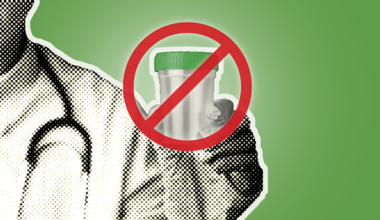
Most Americans favor the enactment of a broad array of legal reforms specific to marijuana policy, according to nationwide polling data provided by YouGov.com.
Specifically, six-in-ten Americans say that “marijuana should be made legal in the United States.” Majorities of Democrats (72 percent) and Independents (60 percent) back legalization, while most Republicans (46 percent) do not.
Last week, members of the United States House of Representatives voted 220 to 204 in favor of The MORE Act, which removes marijuana from the federal Controlled Substances Act thereby allowing states to legalize cannabis markets free from federal interference. Most Democrats (217) voted for the bill while all but three Republicans voted against it.
A majority of Americans also support amending federal law so that banks and other financial institutions can explicitly partner with state-licensed marijuana businesses. Support for the policy change is strongest among Democrats (66 percent) and weakest among Republicans (38 percent).
Under existing federal law, financial institutions are discouraged from partnering with state-licensed cannabis businesses. According to the most recent financial information provided by the US Treasury Department, only about ten percent of all banks and only about four percent of all credit unions provide services to licensed cannabis-related businesses.
House members have voted on six separate occasions to pass federal legislation (The SAFE Banking Act) to reform this policy, but Senators have never taken any action to advance it in the Upper Chamber. Most recently, House members voted in February to include SAFE Banking provisions in HR 4521: the America COMPETES Act. Senators failed to include similar language in their version of the bill.
Earlier this week, Treasury Secretary Janet Yellen expresses her frustration with Congress’ inability to rectify the issue, stating, “As you know, there is a conflict between state and national law. Banks trapped in the middle of that. And some legislative solution, I think, is necessary to move this forward. I share your frustration that we haven’t been able to make progress. I think it does really require congressional action.”
Fifty-seven percent of respondents also said that they support expunging marijuana-related convictions for non-violent offenders. Seventy-two percent of Democrats and 56 percent of Independents endorse the policy.
In recent months, state and local officials nationwide have moved to either expunge or seal the records of over two million people with prior cannabis convictions. In December, House members introduced federal legislation to provide funding to state and local governments for the purposes of expunging the records of those with marijuana-related convictions.
Commenting on the poll results, NORML’s Deputy Director Paul Armentano said: “Each of the major pieces of marijuana policy reform legislation currently pending before Congress enjoy majority support from the American people. It is political malpractice for lawmakers, and those in the Senate especially, to continue to let these efforts languish at a time when most voters and when the majority of states have already rejected the failed policies of criminal prohibition.”
With respect to the public’s attitudes toward cannabis, the YouGov.com poll reported that the overwhelming majority of respondents perceived the use of alcohol and tobacco to pose far greater dangers to health than the use of cannabis.
Additional details from the poll are available online here.
Related
Medical Disclaimer:
The information provided in these blog posts is intended for general informational and educational purposes only. It is not a substitute for professional medical advice, diagnosis, or treatment. Always seek the advice of your physician or other qualified healthcare provider with any questions you may have regarding a medical condition. The use of any information provided in these blog posts is solely at your own risk. The authors and the website do not recommend or endorse any specific products, treatments, or procedures mentioned. Reliance on any information in these blog posts is solely at your own discretion.






